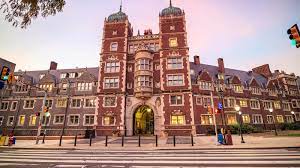You’ve already completed half of the work if you know what degree you want to pursue when you start college. However, you must still choose where you will further your education. If you want to get a psychology degree, you’ve come to the correct spot to get the information you need to make the second half of your decision.
You’ll find plenty of information on institutions that offer some of the country’s best psychology programs here. You may find information about each college’s student enrolment, graduation rate, and tuition costs for in-state and out-of-state students, as well as more detailed profiles.
A bachelor’s or master’s degree in psychology, or a closely related branch of behavioral science, is usually the minimal entry-level prerequisite for any psychology profession.
However, more and more jobs require individuals to hold a psychology Ph.D. or PsyD. In psychology, both the Ph.D. and the PsyD are terminal degrees.
This shows that they are the highest degrees conferred. Both doctoral degrees prepare students to practice psychology as a licensed psychologist. They require a doctoral degree in psychology if you want to practice psychology in a therapeutic setting in the United States.
A PhD in psychology typically takes between 5 and 7 years to finish. Students must undergo a supervised clinical or research-oriented residency under the supervision of a licensed psychologist and mentor after graduating from either a PhD or PsyD degree.
Before applying for state licensing, most states now require those wanting a profession in direct patient care and counseling to have a year or two of clinical experience.
Table of contents
- Choosing A School
- Undergraduate Psychology Programs
- Graduate Psychology Programs
- School Accreditation
- Types of Psychology Programs
- Typical Psychology Courses
- Columbia University In The City Of New York
- University Of California-Los Angeles
- University Of Michigan -Ann Arbor
- Washington And Lee University
- University Of California- San Diego
- Harvard University
- University Of Illinois -Urbana Champaign
- University Of Virginia Main-Campus
- University Of California-Berkeley
- University Of Southern California
- Yale University
- Stanford University
- Princeton University
- Frequently Asked Questions (FAQs)
Choosing A School
You must examine admission standards and requirements for your chosen school(s), whether you are applying to a bachelor’s degree program in psychology or a graduate psychology degree program. It is always a good idea to apply to multiple schools if your top choice does not accept you.
The American Psychological Association is a fantastic place to look for application deadlines, acceptance rates, funding opportunities, and tuition fees for hundreds of psychology graduate programs in the US and Canada.
The site also includes advice for top psychology students on how to stand out from the crowd, including how to gain valuable research experience as an undergraduate, how to choose the best undergraduate course schedule, and how to build relationships with faculty and mentors who will eventually write letters of recommendation for their students.
If you’re considering getting a bachelor’s degree in psychology online, our guide to getting an online psychology degree has online learning advice and information to help you compare the best distance psychology schools.
Undergraduate Psychology Programs
Psychology is a popular major in colleges and universities nationwide because it creates well-rounded graduates who can think critically and communicate effectively. Because becoming a practicing psychologist causes further education and license, many psychology majors find jobs in disciplines unrelated to their degrees after graduation.
Students should focus on taking classes that will improve their marketability after graduation while studying psychology as an undergraduate. Students can differentiate themselves in business, healthcare, or whatever career interests them by picking a complementary minor or an emphasis outside of psychology.
Psychology majors might increase their chances of landing a job by looking for jobs that need excellent writing abilities, critical thinking, small group work, and interpersonal communication before graduation. Graduates in psychology are often successful in fields where understanding human motivation is crucial.
While each school has its own admissions standards, anticipate sending your official high school transcript or GED certificate, along with a minimal application fee, with your application to be accepted into most colleges. Many colleges will require score reports from the ACT or SAT exams, especially those with a competitive admissions procedure. If you have a high GPA and have taken part in extracurricular activities, you will be more competitive as a candidate.
Graduate Psychology Programs
Some undergraduates apply for graduate schools just after finishing their bachelor’s degree, while others return to school in their mid-career to advance their position or earn more money. Many psychology students get master’s degrees to prepare for professions in specific fields.
An aspiring coach, for example, can pursue a master’s degree in sport psychology to improve his or her qualifications for the job. Someone who wants to be a sheriff or police chief may pursue a master’s degree in criminal psychology. To be qualified for those roles, an individual entering the field of product design will most likely get a master’s degree in human aspects.
Students considering pursuing a doctoral degree in psychology should first decide if they want to work as a practising psychologist in a clinical or counseling setting, or whether they want to work in applied research or academia.
This distinction will help them decide which type of psychology degree to pursue. Those interested in becoming practicing psychologists should apply to an APA-accredited doctoral program in counseling, clinical, or school psychology at a college or university.
Doctor of Psychology (PsyD) or Doctor of Philosophy (PhD) in Psychology degrees are available through these programs. Both degrees include clinical practice training; however, Ph.D. programs are often more research-oriented than PsyD programs.
As a result, those who wish to work in research or academia should apply to PhD programs first. However, both degrees can lead to professions in psychology. Regardless of the sort of degree earned, all PhD graduates who wish to practice psychology in a clinical setting must first get the necessary licensing in their chosen state.
They do not always require a bachelor’s degree in psychology for admission to a graduate program in psychology, although they frequently require it along with a statement of purpose, official transcripts, and usually acceptable GRE or GMAT scores, which vary by school. For international students, they may require TOEFL scores. For further information, contact the schools of your choosing.
School Accreditation
When looking into psychology schools, accreditation is a crucial element to consider. Institutional and programmatic accreditation are the two basic types of accreditation. Institutional accreditation denotes that the granting agency has granted accreditation to the entire school.
Regional accreditation is a type of institutional accreditation that signifies that a school has met widely accepted quality and performance standards, is a requirement for certain types of federal funding (including student federal financial aid) and can improve the likelihood that credits earned at one regionally accredited school will transfer to another.
The Higher Learning Commission (HLC), the Middle States Commission on Higher Education (MSCHE), the Northwest Commission on Colleges and Universities (NWCCU), the Southern Association of Colleges and Schools Commission on Colleges (SACSCOC), and the WASC Senior College and University Commission are the six regional accrediting bodies in the United States (WSCUC).
There are national programmatic accreditors that specialize in the accreditation of psychology and counselling programs besides these regional accrediting bodies. These accreditations are program-specific, meaning they give them to a single degree program within a school.
The American Psychological Association (APA), the National Association of School Psychologists (NASP), the Council for Accreditation of Counseling & Related Educational Programs (CACREP), and the Psychological Clinical Science Accreditation System are all major programmatic accreditors in the psychology field (PCSAS).
Types of Psychology Programs
Undergraduate and graduate degree programs are increasingly being provided in various formats to accommodate the demands of a wide range of students. Psychology programs are no exception. Because psychology is one of the most popular fields of study in the United States.
There are hundreds of conventional psychology programs for traditional students who want to attend class on-campus in an organized classroom setting.
There are many alternative sorts of psychology programs for non-traditional students.
Such as online, hybrid, and nighttime programs, for people who work full-time, have children, or are otherwise hampered by the obligation to attend class on a set schedule.
Typical Psychology Courses
Because psychology courses are available at all levels, from undergraduate to doctoral, the psychology courses available are diverse.
Introduction to Psychology, Child Psychology, and Social Psychology are typical undergraduate courses taken before students decide on a focus.
Graduate-level courses such as Human Memory and Learning, Issues & Ethics in Counseling, and Theories of Personality are more likely to be taken.
- Abnormal Psychology
- Adult Development and Life Assessment
- Animal Sensory Processes
- Basic Counseling Skills
- Brain and Behavior
- Child Psychology
- Child/Adolescent Development
- Cognitive Functioning in the Elderly
- Cognitive Psychology
- Conditioning and Learning
- Counseling Psychology: Methods of Applied Psychology
- Developmental Psychology
- Hormones and Behavior
- Human Growth and Development
- Human Memory and Learning
- Human Services Practicum
- Industrial/Organizational Psychology
- Introduction to Psychology
- Issues & Ethics in Counseling
- Lifespan Development
- Mind and Cognition
- Neuroscience
- Physiological Psychology
- Psychology Capstone
- Psychology of Adult Development and Aging
- Psychology of Language
- Psychology of Learning
- Research and Presentation
- Research Methods in Psychology
- Senior Thesis I
- Senior Thesis II
- Sensation and Perception
- Social Psychology
- Sports Psychology
- Statistics for the Behavioral & Social Sciences
- Theories of Personality
Here’s a list of some colleges with good psychology programs you can enroll in :
Columbia University In The City Of New York
Columbia University, which is in New York City, is at the top of the list thanks to its award-winning Department of Psychology. The psychology department offers a psychology minor, a psychology major, a neuroscience and behavior major, and PhD and post-degrees. Bachelor’s along with intense education and a low student-to-faculty ratio, these programs provide students with many possibilities for practical research. Graduates of Columbia University in New York City may expect to earn an average of $82,000 per year.
Tuition
In-State: $61,788
Out-of-State: $61,788
The total number of students enrolled is 31,077.
96 percent of students graduate.
They have been awarded 115 diplomas.
University Of California-Los Angeles
With nearly 44,537 students, the University of California, Los Angeles, is a huge public university.
A Bachelor of Arts in Psychology, a Bachelor of Science in Psychology, and a Bachelor of Science in Cognitive Science are among the psychology degrees available at the college.
Applied Developmental Psychology and Cognitive Science majors are also available. Students can also enroll in the school’s Ph.D. program, which offers specializations in health psychology, behavioral neurosciences, and other fields. Graduates from this college typically earn an average salary of $82,000.
Tuition
In-State: $13,240
Out-of-State: $42,994
Total Enrollment: 44,537
Graduation Rate: 91%
Diplomas Awarded: 1,015.
University Of Michigan -Ann Arbor
The University of Michigan, based in Ann Arbor, offers a variety of options for pursuing a psychology degree.
The school offers an undergraduate psychology curriculum with developmental, clinical, personality, and social psychology concentrations.
The college’s biopsychology, cognition, and neuroscience majors are ideal for those interested in a more specialized psychology program.
For highly successful students who have the potential to thrive in a Master of Psychology program, there is also a sped-up master’s degree program.
Students enrolling in a psychology undergraduate program might take part in student groups, internships, and study abroad programs.
A PhD program in social psychology, clinical science, biopsychology, and developmental psychology is also available at the college. The University of Michigan in Ann Arbor graduates earn a yearly income of $79,000.
Tuition
In-State: $15,558
Out-of-State: $51,200
46,716 students enrolled in total.
92 percent of students graduate.
They have awarded 633 diplomas.
Washington And Lee University
Although Washington and Lee University, in Lexington, Virginia, have only 2,223 students, it has an outstanding psychology department.
Students who major in cognitive and behavioural science at the institution will get a comprehensive understanding of mental processes and actions.
Through this program, they can earn a Bachelor of Arts or a Bachelor of Science degree. Graduates from Washington and Lee University earn an average of $76,000 per year.
Tuition
In-State: $54,830
Out-of-State:$54,830
Total number of students enrolled: 2,223
95 percent of students graduate.
Diplomas Awarded:12
University Of California- San Diego
The University of California, San Diego, offers over 100 degrees and programs to its 37,887 students. The Department of Psychology at the institution provides a minor in psychology and Bachelor of Science and Bachelor of Arts degrees in psychology.
Human health, clinical psychology, social psychology, sensation and perception, cognitive psychology, or developmental psychology are among the specialties available to students pursuing a Bachelor of Science in Psychology.
A Bachelor of Science in Cognitive and Behavioral Neuroscience is also available at the college.
There’s even a PhD in psychology program that requires students to complete a year-extensive research project. Graduates of this university may expect to earn around $78,0000 in their first year.
Tuition
In-State: $14,415
Out-of-State: $44,169
37,887 students enrolled in total.
86 percent of students graduate.
They have awarded 374 diplomas.
Harvard University
Harvard University, in Cambridge, Massachusetts, is the country’s oldest college, thus it comes as no surprise that it has an outstanding psychology department.
Students can pursue an undergraduate degree in psychology, emphasizing social and cognitive neurosciences or mind, brain, and behaviour, among other possibilities.
Graduate students in the college’s curriculum will receive training in four research areas: social science, clinical science, developmental science, and cognitive science.
Each year, they accept about 65 students into the elite graduate program, which leads to a PhD. The average Harvard graduate starts with a salary of $74,800 per year.
Tuition
In-State: $51,925
Out-of-State: $51,925
Total number of students enrolled: 31,566
98 percent of students graduate.
Diplomas Awarded:134
University Of Illinois -Urbana Champaign
The University of Illinois in Champaign is a huge public university with around 49,702 students.
Students can pursue a Bachelor of Science in Psychology, a Master of Science in Psychological Science, or a PhD at this award-winning college.
Students pursuing a PhD in psychology can specialize in cognitive neuroscience, social personality, industrial-organizational psychology, or attention and perception.
Many of the college’s psychology programs offer a few online classes, ideal for students during the winter and summer vacations. Graduates of this university often earn $76,000 per year on average.
Tuition
In-State: $15,122
Out-of-State: $32,264
Total number of students enrolled: 49,702
84 percent of students graduate
Diplomas Awarded: 478
University Of Virginia Main-Campus
The University of Virginia in Charlottesville, aims to educate the next generation of psychology leaders. A minor in psychology, a Bachelor of Arts in Psychology, and a Master’s in Psychology Research Methods are all available at the school.
The Current University of Virginia undergraduate students can complete the master’s program in one additional year.
A PhD in Psychology with a concentration in quantitative, cognitive, social, community, developmental, or community psychology is also an option for students. Graduates at the University of Virginia may expect to earn around $77,000 in their first year.
Tuition
In-State: $17,798
Out-of-State: $50,900
They enrolled 24,639 students in total.
94 percent of students graduate.
They have awarded 220 diplomas.
University Of California-Berkeley
The University of California, Berkeley, is a well-known center for psychological study.
Clinical science, developmental, behavioral, systems neuroscience, cognitive neuroscience, and social/personality psychology are among the research fields covered by the college’s undergraduate and graduate psychology departments.
A bachelor’s degree in psychology can prepare students for various jobs, including clinical research, teaching, counseling, and psychiatrist. Graduates from this college may expect to earn around $86,000 per year.
Tuition
In-State: $14,253
Out-of-State: $44,007
Total number of students enrolled: 42,501
91 percent of students graduate
Diplomas Awarded: 212
University Of Southern California
The University of Southern California, in the heart of Los Angeles, has one of the most varied student populations in the country.
Students can enroll in an undergraduate, master’s, or doctoral psychology program through the school’s psychology department.
On-campus or online options are available for the Master of Science in Applied Psychology. Even a summer internship in Ireland is available as part of the master’s program.
Clinical science, developmental psychology, social psychology, cognitive science, and quantitative methods/computational psychology are all options for those interested in pursuing a PhD degree in psychology.
University of Southern California graduates earn an average of $83,000 a year.
Tuition
In-State: $58,195
Out-of-State: $58,195
They enrolled 47,310 students in total.
92 percent of students graduate.
They have awarded 250 diplomas.
Yale University
Yale University, an Ivy League institution with a history dating back to 1701, is a cornerstone of American higher education.
For undergraduates, the Department of Psychology is a popular choice. In fact, Yale’s PSYC 157, “Psychology and the Good Life,” is the most popular course in the university’s history.
Features
Within Yale’s Department of Psychology, you’ll have to choose between a few options. The General or Neuroscience Track can lead to a BA or BS in Psychology.
For both tracks, everything but the course content is the same. You’ll take classes like this between the two.
- Theory and Practice of Early Childhood Education
- Introduction to Cognitive Science
- The Criminal Mind
- Attraction and Relationships
- Notables
At Yale, the degree is extremely interdisciplinary. It gives students a lot of freedom to pursue their own research interests. In fact, the final Senior Requirement comprises two courses, one of which is a non-empirical literature review and the other is an empirical research experiment.
Stanford University
The research university in Silicon Valley not only has the best psychology department in the country, but it also ranks highly internationally.
Features
The Psychology major at Stanford has 180 credits, with 70 being in psychology. Psychology honors students will spend their final year completely involved in research. Students can also focus their study on one of four focus tracks offered by the program:
- Cognitive Sciences
- Health and Development
- Mind, Culture, and Society
- Neuroscience
- Notables
Stanford’s curriculum stands out because of the high-level research opportunities it provides. The Psych-Summer Research Program is available to undergraduates. They will pay them $7,500 to spend the summer working closely with a faculty member on research.
Princeton University
Princeton University joins the Ivy League’s east coast mainstays with its own presence and academic brilliance. The research university in New Jersey has a top-ranked Department of Psychology with award-winning academics.
Features
The BS in Psychology at Princeton requires 11 core courses, including three prerequisites and eight major courses. Besides the core degree program, Princeton provides undergraduate psychology students certificate programs in fields such as:
- Cognitive Science
- Applications of Computing
- Gender and Sexuality Studies
- Language and Culture
- Notables
You don’t have to wait until you’re a junior or senior at Princeton to get involved in research. The program incorporates lab opportunities into early education to ensure they will equip younger students for future independent study.
Frequently Asked Questions (FAQs)
Several factors, most of which are related to your tastes, will determine the answer to this question. Choose an online or hybrid program if you need more flexibility in attending psychology school. A traditional psychology degree may be appropriate for you if you prefer to attend classes in person and have a schedule that permits you to be on campus.
If you choose an online program, be sure the curriculum is identical to or equal to the on-campus version to guarantee you get the most value for your money. For additional information, see our Guide to Earning an Online Psychology Degree.
The answer to this question is, once again, incredibly personal. Do your homework to choose the best psychology school for you! Check to see if they are locally accredited the institution you’re considering and if they offer the specialization(s) you’re looking for. We also suggest applying to the top three institutions of your choice if your first pick does not work out. For additional information, have a look at some of our school profiles.
The sort of program you pick will determine the time to finish a psychology program. An undergraduate psychology program will take four years to finish, and a graduate psychology program will take two to seven years to complete, depending on the degree level. You will need additional time to complete your program if you are a part-time student.
There are, fortunately, alternatives to attending a standard psychology school for students with a tight schedule. Alternatively, you could look at an online or hybrid school, as well as an evening program. Non-traditional students who require more flexibility and autonomy in their psychology school may benefit from online, hybrid, and evening programs. Part-time study, whether on campus, online, or in a hybrid program, is another option that gives students additional scheduling freedom.
Conclusion
Finally, the prerequisites to finish with a degree in psychology may vary depending on the school and program you attend; therefore, be sure to select the program that best fits your desired professional path.
References
- educationcorner.com/psychology-college-rankings/
- universityhq.org/best-colleges/rankings/psychology-schools/




